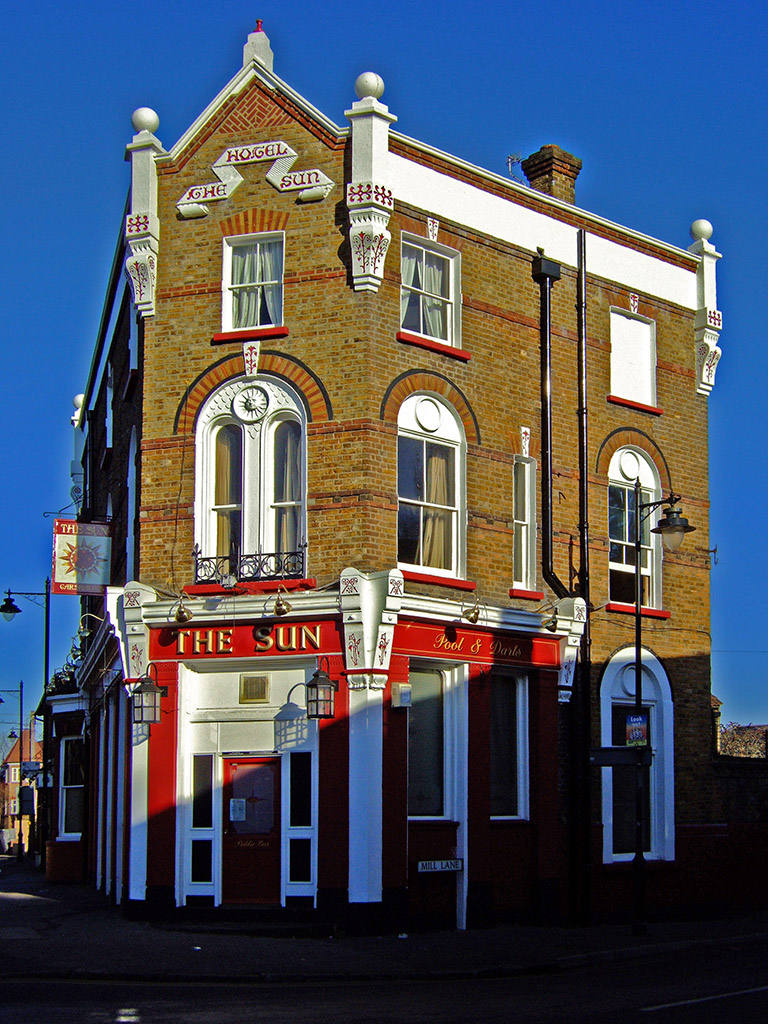We often mention certain aspects of words and it only just occurred to us that we haven't ever explained what they are. Just in case you've been a little confused in the past, we've provided a little glossary of the classifications of words for you.
Nouns are things. Most things that can be preceded by the or a (which we'll get into later) are nouns. Examples include everyday things such as house, bed, cat and dog, as well as concepts such as love, hate, anger and envy, to name a few. If there's a name for something it's most likely a noun. Beer is a noun and we'll be using it in every example.
Example: "A beer."
Example: "A beer."
Verbs
If you remember covering verbs in school, you were probably told that verbs are doing words. Verbs are actions pretty much 100% of the time. They conjugate as well, meaning that their stem will change based on who or what is doing the action. The change in the verb means that we can explain things in the past, present and future, not to mention concepts such as the conditional and even subjunctive.
Example: "I like beer."
Personal pronouns
The personal pronouns in English include: I, you, he, she, it, we, you (plural), and they when they are the subject, meaning the thing that does the verb. If this isn't the case then you'll have to use me, you, him, her, it, us, you, and them when they are the object, the thing that is getting something done to it.
Example: "I hit him because he took my beer."
If someone or something owns something then you'll need the possessive pronoun. They include mine, yours, his, hers, its, ours, yours, and theirs.
Example: "The beer was mine."
Relative Pronouns
Relative pronouns join parts of sentences together. Words such as who, whom, whose, which, and that can all be relative pronouns. Put simply, when the latter part of a sentence requires one of those words, odds are that you have yourself a relative pronoun.
Example: "This is the beer which I drank."
Relative pronouns join parts of sentences together. Words such as who, whom, whose, which, and that can all be relative pronouns. Put simply, when the latter part of a sentence requires one of those words, odds are that you have yourself a relative pronoun.
Example: "This is the beer which I drank."
Adjectives
Adjectives add qualities and details to nouns, they're describing words. If something is big or small, fat or thin then you've got yourself an adjective.
Example: "I love a cold beer!"
Adverbs
Adverbs work much in the same way as adjectives, except they add details to verbs. They explain how a verb is done. Many of them in English use the suffix -ly, so you can better explain how something was done.
Example: "I quickly drank my beer as the bar was closing."
Articles
Articles are a type of determiner and come in two forms, definite and indefinite. The definite article, the, implies that the listener or reader knows which thing you're talking about.
Example: "Where is the beer?"
The indefinite article is used when the listener or reader may not know which thing you are referring to, or it's not important.
Example: "I would like a beer."
Conjunctions
Conjunctions work in a similar way to relative pronouns. They constitute "connecting words" and most of words you were told to never told to start a sentence with. Words such as and, but, for, or, yet, so, and nor are all conjunctions.
Example: "I drank a beer but I can still drive."
Conjunctions work in a similar way to relative pronouns. They constitute "connecting words" and most of words you were told to never told to start a sentence with. Words such as and, but, for, or, yet, so, and nor are all conjunctions.
Example: "I drank a beer but I can still drive."
Prepositions
A preposition is a word that usually explains where something is in relation to something else. Words such as in, on, over and under are all prepositions. They can also refer to semantic concepts such as of and for.
Example: "My beer is in my hand."
Interjections
Interjections are words for emotions and sentiments. Most of them are followed by an exclamation mark.
Example: "Wow! What a fantastic beer!"
Example: "Wow! What a fantastic beer!"
Determiners are an interesting classification of words. Their main function is to clarify or determine a noun or noun phrase. Examples include articles as well as possessives pronouns, both of which we mentioned before. So what aren't determiners?
Nouns and verbs are definitely not determiners. Determiners can be articles, possessives, demonstratives such as this and that, as well as quantifiers such as some, all, few and many.
Numbers both cardinal (one, two, three) and ordinal (first, second, third) are also considered determiners as they mention how many of a certain noun there are or what order they came in.
Example: "This beer is mine!"
The main criticism of word categories is that, as you have seen, it tends to pigeon-hole words into just one category. Many words can be many things, so is it productive to categorise them thus? What do you think? The comments are below if you have something to say...




No comments:
Post a Comment